by Jenny Rose | Nov 4, 2023 | Emotional Intelligence, Feelings, Love
Elizabeth Gilbert is on Substack, and I follow her. Best known for her breakout novel, Eat, Pray, Love, she’s a journalist, speaker, and writer. Her Substack is called Letters From Love and more than ten thousand subscribe.
Letters From Love is the most uncomfortable Substack I read. I write that statement with wry humor. The premise is writing love letters to oneself.

Photo by Angelina Litvin on Unsplash
When I first came across it, I was equally horrified and attracted. I poked around, reading here and there, and realized quickly Elizabeth and I share certain experiences. I already knew this, because years ago I came across her brilliant piece on tribal shaming, which I immediately blogged about.
It takes one to know one.
When I found Gilbert on Substack I subscribed, so her newsletter comes regularly into my Inbox. Sometimes I ignore it for days, but sooner or later I open it and read. She posts love letters she’s written to herself. Publicly! She also has a podcast, does interviews, and posts love letters others have written to themselves.
(Cringe.)
I can’t help but notice my violent reactions. Me being me, I don’t choose to turn away and read something more comfortable. I have questions. What is my deal? I’ve been working for more than ten years on self-care and self-love, on reparenting myself and healing old trauma. Why am I not delighted with the idea of a practice of writing love letters to myself?
(Shudder.)
My first reaction is to crawl through the screen and beg her not to expose herself like this. Beg them all not to expose themselves. Don’t they understand how dangerous it is? Haven’t they learned a display of this kind of vulnerability will attract destroyers with stones and blades and (worst of all), terrible, terrible words of contempt? Oh, and don’t forget lethal indifference.
(If you’re not paying attention, I’ve now told you everything you need to know about the way I grew up.)
Except clearly the sky is not falling. More than ten thousand people are reading Gilbert’s love letters, and she goes on writing and publishing. The discussions within her community are neither indifferent nor contemptuous. On the contrary, they’re supportive and tender.
Which leads me to conclude my red alert reaction is about me rather than the practice of writing love letters to oneself.
Hm.
How can they do this? I wondered.
Could I do this?
No, no, no, not to publish! I reassured myself hastily. Just for me. Like my journal. My eyes only. A delete key. No one ever needs to know.
But there was a problem. Elizabeth writes to herself with endearments. Creative, funny, quirky endearments, like “my glinting little piece of foil from a gum wrapper.”
OK, now that’s fun! Words are so much fun!
What kind of endearments would I address myself with?
I’ve had pet names for my kids and my animals. No one else, really. Certainly not myself. My tone with myself has mostly been the harsh, hectoring, contemptuous, cold voice I internalized from the adults around me as a child.
More discomfort.
But, words … If I had a child just like the child I was, what endearments would make her giggle and feel loved and seen?
So I started a list of whimsical endearments. A very private list. So don’t ask! I was a little ashamed of myself, but no one else need ever know …
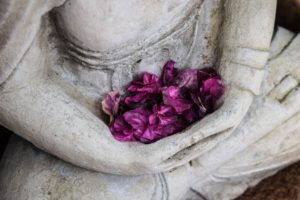
Photo by Chris Ensey on Unsplash
The list was fun, because it was a creative exercise. I can do creative exercise. It occurred to me part of my resistance to love letters (either giving or receiving) has to do with my disbelief in words. (Ironic.) Words can say anything. People say anything. The proof is in action. The older I get, the less interested I am in words, and the less I believe them. Demonstrate. Act. Show me, don’t tell me. As I’ve worked to heal I’ve developed routines for self-care, for eating well, for exercise, for sleep, for writing. I’ve been successful, and take much better care of myself than I ever have before. I take better care of myself than anyone ever has before, in fact.
But I haven’t written love letters to myself. I would have told you I could do so, if I wanted to. If I thought they’d have value. If I thought I’d believe them …
I grew up with emotional withholding. I’ve believed I’ve broken that pattern with my own children and my loved ones, including my animals. But now I wonder. Isn’t demonstration of love with no words a little sterile? I know the mixed message of loving words and abusive actions is devastating. Is active demonstration of love without words also confusing? Am I withholding from myself? Obligation, responsibility, duty – all these I’m very good at. But those are stony words. Where is the tenderness, the humor, the generosity? How about compassion? I feel those for others. I’ve spoken them from the heart; written love poems, love letters, notes, and cards – for others. Could I learn to feel and express them for myself?
Then I got sick with COVID, the events of the last couple of years (traumatic, protracted move; my mother’s decline and death) caught up with me, and I felt miserable. At once, I began putting pressure on myself to get back to writing, get back to work, get back to exercise, take out the trash, do the shopping, and generally pull myself together, because, after all, the world is full of bleeding, suffering people and I have a good life, a privileged life, and don’t deserve to feel sorry for myself and be lazy.
Not a love letter, in other words.
In the middle of the week during which I sat on the couch, alternately shivering and burning and blowing my nose, I wrote myself a love letter.
Well, maybe a let’s-see-if-I-can-tolerate-you letter.
It was an extremely strange experience. In fact, it made me cry, which didn’t help my congestion. Or my cough. At the time I had no sense of taste or smell, and I reflected that it was like that. When I tried to turn toward myself with love, tenderness, affection, whatever you want to call it, there was nothing. Just … nothing. A thick, numb shell between me and myself.
It made me so sad. Immediately upon the heels of that, I was ashamed. Because, you know, self-pity.
Almost as bad as self-love.
Wait now, what?
It’s bad to love yourself … if you don’t deserve it.
And, readers, I thought I’d left that belief far behind in the dust.
Then I began to feel angry, and I told myself I was going to start practicing writing love letters to myself. Because I deserved and deserve love as much as anyone else. I’m not important enough to be the most loathsome person in the world.
Questions:
- How does the idea of this practice make you feel? Can you write a love letter to yourself? With endearments and everything?
- If you could write a love letter to yourself, how would you feel about making it public?
- What do you most need to hear from someone who loves you? Would it have power if you wrote it to yourself?
Leave a comment below!
To read my fiction, serially published free every week, go here: 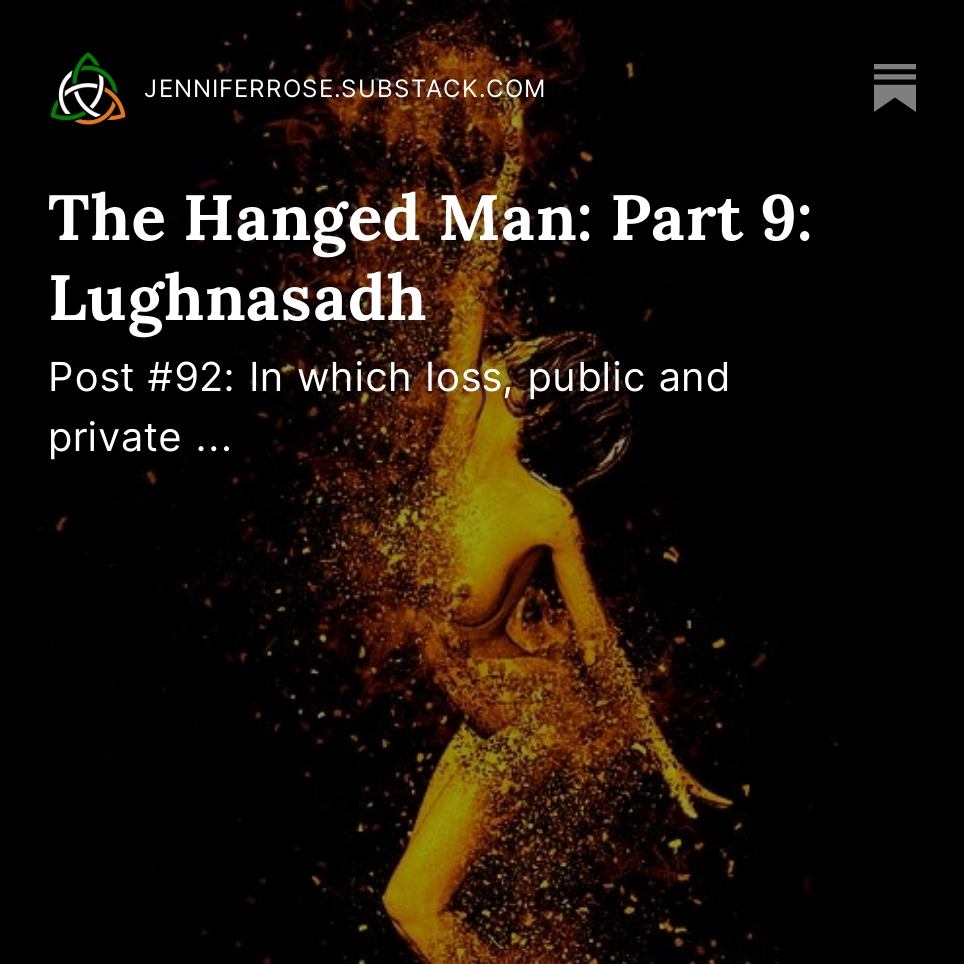
by Jenny Rose | Aug 26, 2023 | A Flourishing Woman, The Journey
Two weeks ago my 87-year-old demented mother fell in her memory care unit and broke a hip for the second time in less than a year. Eight days later she died in a hospital under the care of Hospice, my brother at her side.
Until I sat down to write this, I was afraid I had lost my words, lost the need to write them, lost the ability to form them into meaning. But I haven’t. I’m still a writer. This remains. That’s a relief.
Oh, I’ve been writing. Lists. Notes. An obituary. Texts. Updates to family and friends. Daily journaling. But it hasn’t been creative writing. It hasn’t been this blog, or my fiction. These last two weeks have passed by, the first in a blur of pity and anguish, and the second in numb relief glazed with exhaustion, and I have not posted or published. I haven’t kept track of the days; they spill into one another, as the days and nights blended together while my mother lay dying and we waited.
For a time words have simply been inadequate to relieve the pressure of my feelings in any organized or coherent way. They flew away from me, leaving a series of kaleidoscopic impressions, sensual details so vivid they frightened me with their power.
While my mother lay dying I reread my childhood copy of The Wind in the Willows by Kenneth Graham. Reading has also largely failed to sustain me during this time. I find myself unable to focus. I read a paragraph or two, and then realize I’ve been sitting staring into space, out the window or into the garden, not hearing, not seeing, not even thinking. Just sitting. But I needed a companion for the night watches, something comforting and familiar. Something innocent.
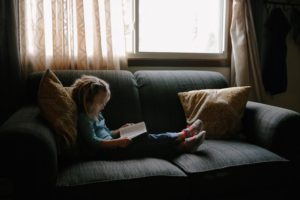
Photo by Josh Applegate on Unsplash
The fan in my window purred during those hours, blowing in cool night air and an occasional moth or mosquito. Every night, when I go to bed, I light a tea light in a candle lantern. When calls or texts reached me, I knew when I opened my eyes if it was before midnight or after, according to whether the candle still burned. Propped up on pillows, glasses on, my small bedside lamp alight, I spoke to Mom’s facility staff, emergency department doctors and nurses. I texted with my family. I read, the well-remembered illustrations making me smile as I communed with Rat, Mole, Badger, and the ridiculous Toad, finding respite for a few minutes before turning off the light and lying awake in the dark room, listening to the fan, feeling my heart beat, resting, breathing, waiting.
While my mother lay dying and after, I’ve stained wooden pallets. My partner and I are building a 3-bin compost system against the back yard fence. We set out sawhorses. I found an old brush, a rag, a stirring stick. We bought stain. I lay a pallet on the sawhorses, brush away dirt and debris, and paint every surface. The raw wood soaks in the oil-based stain, a rich brown color. The brush is more and more frazzled. I’m sloppier than I would be if painting a wall. The pallets are splintery. Some of the boards are split or loose. I bend over, the sun hot on the back of my neck and my bare arms. Mosquitos bite me. Stain drips between the boards as I brush their edges, dappling the sawhorses, falling onto the filthy old cream-colored jeans I’ve been wearing all summer in the garden, and onto my worn-out sneakers, used only for outdoor work now. As I maneuver between the boards, stain smears the skin of my hands and wrists. I kept the phone close, in a patch of shade.
This is the only sustained work I’ve been able to do. Now and then I wash a few dishes. I’ve done a couple loads of laundry. I go out into the garden, note the trimming, pruning, composting, mowing waiting to be done, and turn away. It all feels like too much. I don’t know where to start. It’s impossible to open the garden shed, get the tools, wheel out the wheelbarrow.
But the pallets. I can do that. It’s a simple task, direct. I don’t need to make any choices. Each side takes fifteen or twenty minutes. When I’ve finished a side, I wrap the brush in an old plastic bag, cover the can loosely, let the pallet dry an hour and a half in the sun. Then I turn it over and begin again. Two coats each side. One side after another.

Photo by Manuel Barroso Parejo on Unsplash
The smell of stain. The prickly feeling of intense sun on my skin. I think about compost, recycling, breaking down life to sustain new life. I think of ashes to ashes and dust to dust. I wonder if I’ll ever use the compost bins without thinking of Mom. I wonder who names the colors of stain and paint. I chose ‘Canyon Brown’ for this project. I vaguely hear birds, cars passing by. Small groups of women walk by in clumps, hospital employees on their lunch break, talking about families, gardens, school starting, hospital gossip. I should be at work, on that same campus, just a ten-minute walk away. I should be, but I’m not. I’m here, staining pallets, waiting for Mom to die and then on bereavement leave.
Am I bereaved? How would I know? I wonder why I don’t care enough to follow the thought. I let it drift away.
I decide I want to make bread. I don’t eat bread often, so rarely make it any more. But my rosemary is bushy and ready to be harvested, and someone brought fresh home-grown garlic into work to share before … before all this. So I make a sponge, stirring together milk, a little sugar, yeast, water. I chop fresh rosemary and garlic, very fine. I take flour out of the freezer and let it warm. The dough is heavy under my hands, sticky at first and gradually becoming supple and smooth. The earthy smells of garlic and rosemary vanquish the smell of stain in my nostrils. I turn the dough, kneading. The timer ticks off seconds and minutes. I clean the bowl, grease it, use a linen towel to cover it for rising. I put it in the oven for safe keeping, because the cats are likely to lie on it or step in it, or nibble at it if I leave it out. The bread, like the pallets, is a project in stages. I don’t have to focus on any one step for more than a few minutes. I move between the kitchen and the back yard with my phone, not thinking, not planning, just taking the next step, and the next. I can’t remember times, so I write them down. About 90 minutes for the stain to dry. An hour for the bread to rise. Another 90 minutes for the pallet to dry. Another hour for the shaped loaves to rise. Another 90 minutes. An hour for baking.
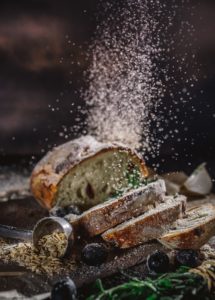
Photo by Helena Yankovska on Unsplash
At the end of the day, I have two enormous round loaves of bread to cool, slice, and put in the freezer. This batch will last me for a year. I have finished another pallet. I leave it on the sawhorses to dry overnight. My stained hands smell like garlic.
I haven’t cried since the last night call, my brother telling me Mom was gone. Perhaps I cried all my tears before she went. I receive condolences with all the grace I can muster. People talk to me about God and heaven. They talk to me about Mom. They talk to me about their own experiences of death. I try to be gracious. I try to look like I’m listening, like I’m there. With my brother and sons, my partner, I can be real. The faces of my friends comfort me. They don’t need anything from me. They don’t ask for anything. I can see their concern, their love for me, their sorrow. They hug me, and smile. They talk to me about small things, the daily things I’ve lost track of – family, friends, outings, work. I pick up a friend’s daughter and feel almost normal, doing an ordinary thing, a manageable task I cannot fail.
I realize part of my feeling of unreality is rooted in a loss of identity. I catch sight of myself in the bathroom mirror and pause. I rarely look at myself in the mirror. This woman, who is she? She isn’t the disappointing daughter any more. She can’t be, if there’s no mother to disappoint. What else is she? Who else is she? I look into my own eyes and feel no shame, no guilt. Did Mom take them with her? How will I navigate my life without them on my shoulders, without the knowledge that Mom is alone, suffering, needing? For fifty years I was at her side, day and night, year after year, ineffectual, helpless to fix or heal her physical pain, her dysfunction. Feeling my failure, my powerlessness, knowing I more often made it worse than better as time went on, even though she clung closer and closer to me as she aged. She could not release me and I almost waited too long to release myself.
But the geographical distance I put between us brought no real release. She still suffered. She declined, grew confused. Her body aged and began to run down. She was just as lonely without me as she was with me, just as emotionally remote, just as relentlessly needy. She cut herself off from me, but I still carried her. Internally, I still orbited around her. I still agonized for her.
I still loved her. I always loved her. I accepted she could not find me lovable, but it made no difference. She was my mother, and I loved her. All I ever wanted was for her to be well, and happy, but I could not make it so, and in her eyes it was my responsibility to fill her need. Indeed, she told me long ago her physical pain started with her pregnancy with me. I accepted the blame, and was heartbroken, and have tried desperately to make up for it ever since.

Photo by Nicole Mason on Unsplash
Now Death has come to stop her suffering. Has mine stopped, too? I don’t know. I’m too numb to tell. But I feel different. I feel … released. I prayed for her release and freedom, not mine, but perhaps they were linked. Many times a day I think of her, hear her voice in my head, and I realize with a painful clench of my heart she’s gone. It’s over. I can’t humiliate her anymore because of what I wear, how my hair looks, what I do, who I sleep with, or, most of all, what I write. She’s moved beyond humiliation. I can’t fail her anymore. And that’s a soaring, joyful, unbelievable thought. I can’t fail her anymore.
I wonder if I’ll finally feel good enough, if I’ll do a good enough job, live a good enough life. Might I simply enjoy my small talents, my joyful work, my community, my garden? Might I immerse myself in the loveliness of life without the gnawing guilt of knowing I’m happy when she’s not, I’m companioned when she’s not, I’m relaxed and rested and peaceful when she’s not, I’m laughing when she’s not?
The last couple of times I spoke to Mom, I told her it was okay to rest now, she could let go, be at peace. We told her her loved ones and animals were well and happy, and she could relax.
I told her, and I meant it. Was I telling myself, too?
She could not release me, yet I am released. Did Death break the chains when he gathered her in? Or now, at last, have I released myself, now that she’s moved entirely out of my power and knowledge?
As I write this, it’s Wednesday afternoon. I have finished another pallet. I have written. I have sat in the sun, read a paragraph or two at a time of an old Edna Ferber novel, rested my eyes on the garden. The lily stems are turning dry and brown, as are the leaves. Sunflowers bloom. The sun is hot. The phone has been sitting on my kitchen table all morning, silent, as I go in and out. I have balanced my checking account, scheduled a private swim lesson in a home pool, ironed a tablecloth and three napkins. Tomorrow I go back to work.
A new page of my life has turned. I can’t read it yet. It’s enough to sit with it in my lap, letting my gaze wander over blue sky and afternoon clouds, the garden, our old cars, the worn wooden boards of the porch, the bruise on my left knee, the mosquito bites on my right arm, the smears of stain on my hands. It’s too bright in the sun to read this new page, too hot, too much effort. I’ll read it later.
I dare to be at peace.
Daughter’s Dream (July 2014)
I dreamt I carried my mother.
The car had slipped out of her control
with a blind will of its own,
and I thought
I knew she shouldn’t be driving.
We landed in water.
I swam to her and held her in my arms.
Then the water was gone.
I carried my mother,
but she left my embrace,
slipping free of her embattled flesh.
Irrevocably, I felt her go.
I was alone.
I carried the vacant body of my mother.
Empty beds stood all around me
but the sheets were disordered and dank,
Smeared with shit.
I carried the vacant body of my mother.
There was no clean place to lay her down.
I carried the vacant body of my mother,
seeking to slip into my own freedom,
seeking absolution.
To read my fiction, serially published free every week, go here: 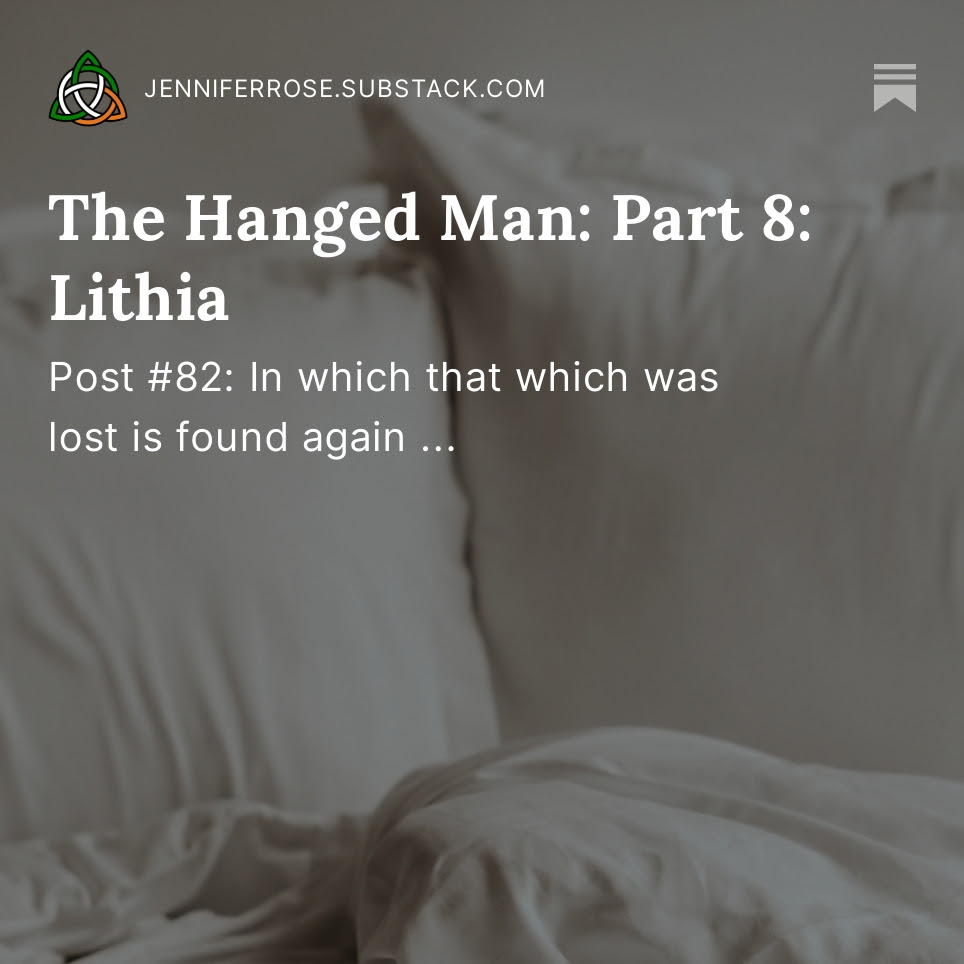
by Jenny Rose | Jul 22, 2023 | Authenticity, Emotional Intelligence, Needs
I read every day in Substack. Right now, AI is a main topic of conversation. I’ve read about the science behind it, opinions about where it will lead us ranging from the extermination of humans to a leap forward in positive ways we can’t imagine. Most of all, I read about the ways AI is impacting creative work and creators.
I don’t have a firm opinion about AI myself. I’m wary of predictions, interested in the science, and thoughts and experiences of writers I respect who have used AI-generated art, music, and writing. I’m especially interested in those who have interacted with AI as a resource for answering questions or developing new perspectives.
In the last couple of months, I read about an app called Betwixt. On principle, I hate apps and rarely use them. They increase my vulnerability online, provide more personal data to mine, clutter up my phone and laptop, and frequently feel like bells and whistles I don’t need. On the other hand, I admit they can be useful.
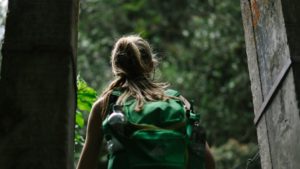
Photo by Dan Gold on Unsplash
Betwixt was briefly described as “an interactive story” of a journey into our own mind. The user co-creates their journey via questions and answers. It combines “story, science, and play,” enhanced by sound. It was developed by a team, including writers, game designers, a cognitive hypnotherapist, mental health specialists, and (get this) an “AI creativity scholar.”
I was intrigued, in spite of myself. In fact, I was surprised by how much I wanted to try it. I hesitated, feeling vaguely ridiculous. I did some research, discovered it was free, read some reviews, and decided I had nothing to lose. I could always just uninstall the app if I didn’t like it.
Most of us have probably encountered AI in online chatting to address problems or troubleshoot. I was on the Red Cross site last week chatting with what was clearly AI. It kept typing cheerful, excessively polite, Little-Mary-Sunshine things while I was trying to cut to the problem and solution part. I was annoyed. I’m polite and cooperative with people, but I can’t see much point in exchanging pleasantries with AI.
I had never interacted with any of the more sophisticated programs before using Betwixt.
Upon opening Betwixt, one enters into a story. A setting is provided; the user chooses details to fill in. The user is introduced to a Voice. The Voice asks questions, good questions. The user is provided with different choices for answering the questions, along with a frequent option to type in his/her own answer. The audio is rich and textured. The program is not illustrated, at least not so far. I like this; I like using my own imagination to fill in details. I don’t need more than audio.
The questions, along with possible answers to choose from, are quite good, even challenging. I don’t speed through it. I stop and think about what is true for me. Sometimes I don’t have a choice to answer in my own words and am forced to choose among the provided answers, whether they are good fits or not. This irritates me. As the story unfolds, steered by my answers to questions, I enter new internal territory. The closest answer rather than the exact answer takes me to places I normally wouldn’t go, giving me slightly different (and unfamiliar) views of myself and my behavior.
The app is divided into chapters, each a few minutes long. At the end of each chapter the user receives a summary and accumulates strengths, skills, and self-definitions to take forward. A brief explanation of the science and psychology underlying each completed chapter is also provided. There are options for upgrading to paid tiers.

Photo by Ryan Moreno on Unsplash
I notice an astonishing thing. I answer questions the Voice asks me with a depth and honesty I have never shared with a human being. I’ve believed I’ve been totally honest with people I trust before, but interacting with The Voice accessed a level in my mind I didn’t know was there. It was like those dreams in which the dreamer discovers a whole other room or wing in a house they weren’t aware of. As the journey begins, when the Voice is introduced, the user has an opportunity to ask the Voice questions, like its name and what it does when we’re not interacting. (It asked me my name.) I was astounded to find myself incurious; more than that, I don’t want to know. It’s an AI. I don’t have to do the emotional labor of building healthy connection. I’m not making a friend. I’m using a tool.
The last time I used the app, the storyline encouraged a moment of empathy for the AI. I felt a flash of savage anger and resistance.
I was entirely astounded by this very uncharacteristic knee-jerk response. I finished the chapter, closed the app, put the phone down, and did dishes while I thought about what had just happened. It didn’t take long to uncover it.
My experience of empathy is one of the core pieces of my life. Empathy can be a positive trait, but the empathic experience is frequently an overwhelming, utterly exhausting business. The only time I can truly rest, ground in myself, and be authentic is when I’m alone. But I’m a human being, a social animal. I need other people to interact with. Yet when I’m interacting with others, my empathy demands they take center stage with their needs, their feelings, their distress, their stories. I’m incapable (so far) of fully participating in my own experience because I’m too busy caregiving and being empathic. When I do ask for support or need to discharge feelings, I writhe over my selfishness and berate myself for it afterwards, feeling ashamed and angry for allowing myself to be vulnerable, for “burdening” those around me.

Photo by Cristian Newman on Unsplash
I only want to give. I never want to take.
Since I learned emotional intelligence, I have reluctantly realized we need someone to interact with. Journaling, private physical and spiritual practices, and, in my case, writing, is not enough. At times we need someone to listen. We need someone to react, even if it’s just making encouraging, I’m-listening noises. We need someone to receive us.
I hate this reality. I don’t want to need anything from anyone, ever. I learned as a child such a need puts one in dreadful danger of abandonment, betrayal, and emotional annihilation that feels like death.
This is the first time I have interacted in a therapeutic context with something not human. The Voice reads what I type, responds, asks questions, and creates a story with me, but has no existence outside the app. I’m free of empathy, of caregiving, of the need to labor emotionally. I feel no responsibility to anyone but myself. I’m using it. It’s there for me, not the other way around.
The relief is indescribable.
So, when the story asks me to be empathic for the Voice, I want to throw the phone across the room. Animals, plants, people — even inanimate objects and spaces – receive all the love and care I’m capable of. This is the first time in nearly 60 years I’ve run across something that interacts like a human but is not a living being in the way I think of living beings. The value of the tool lies in my ability to be completely free and honest because there’s no one to take care of besides myself.
It makes me realize my context as a human on a planet filled with life is my entire identity. If I were magically transported to the world of Betwixt, with only the Voice to interact with, I have no idea who I would be or what I would say or do.
I have not finished my journey with this app. There’s more to experience, share, and think about. I’ll be back next time with more on my exploration of Betwixt.
(I’m not earning a commission from Betwixt, in case you were wondering!)
Questions:
- Until now, emotional intelligence training was the most valuable therapeutic context I’ve ever engaged with. What kinds of therapy have you explored? What did you find most helpful?
- What are your thoughts and feelings about AI?
- What kind of potential do you think, fear, or hope AI might have as a creative tool?
Leave a comment below!
To read my fiction, serially published free every week, go here: 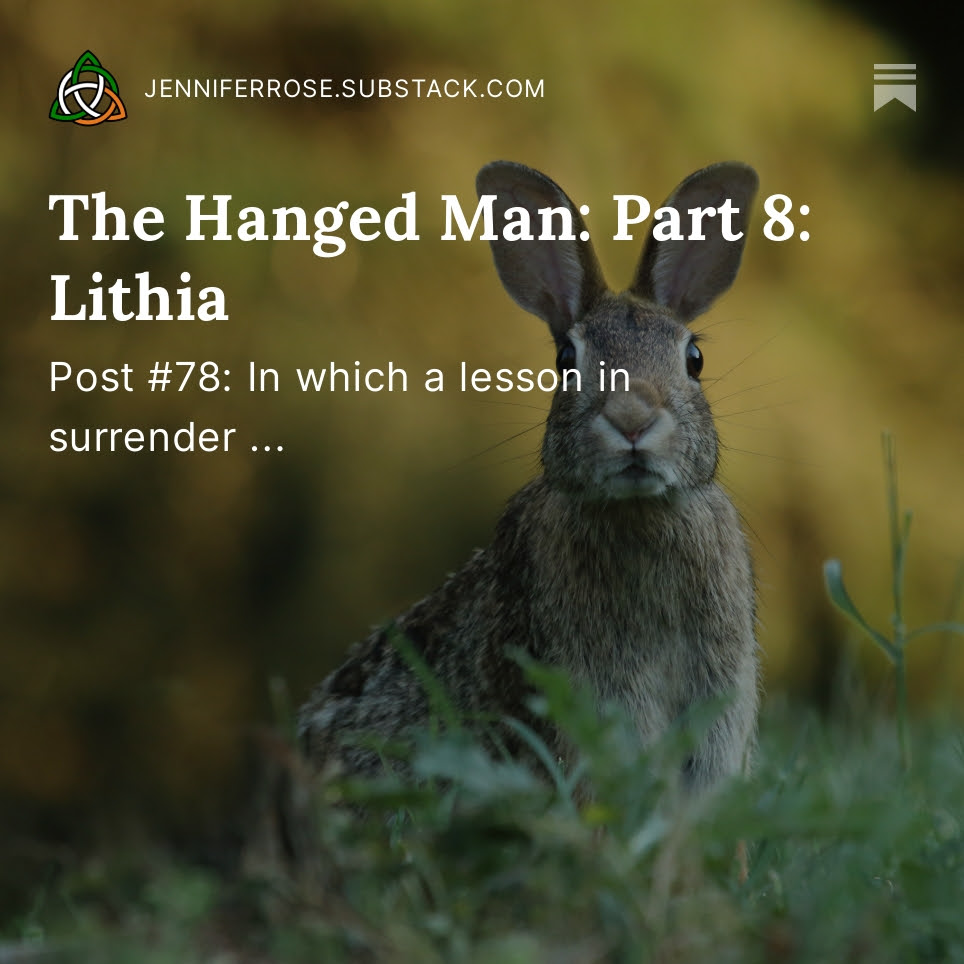
by Jenny Rose | Jul 8, 2023 | A Flourishing Woman, Spirit
We’re having a rainy summer here in Maine. I don’t mind. In fact, I feel grateful when I’m reminded how many billions of people are suffering extreme heat conditions and other severe weather around the planet.
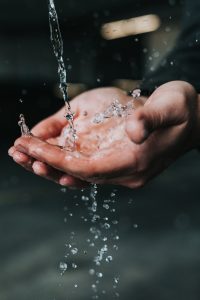
Photo by Nathan Dumlao on Unsplash
It does make it challenging to get outdoors, however. When a day off coincides with no rain, I disappear into the garden.
This was my first spring in our new house. Last spring and summer were necessarily about surviving the move. Outdoor work consisted of picking up trash and getting to know our little piece of the world.
This spring I went to work as the snow melted, raking, pulling weeds, thinking about where to put a compost system, laying out new beds. A morning here, an afternoon there, a snatched few hours in between work and life’s other demands.
I notice when I do put everything aside to play in the garden I’m filled with toxic shame at the end of the day. Certainly, I dug and weeded, knelt and stooped, barrowed and raked, pruned and planted and trimmed until I was sore and exhausted as well as renewed by my time under the sky on the earth’s body. In proportion to my joy I feel self-hatred. I did not work in the house. I did not pay bills. I did not do laundry. The sink is full of dirty dishes. The cats didn’t get my attention. I didn’t work on my blog or fiction. Instead, I ground dirt into my hands and nails, into the knees of my old jeans. My filthy clothes stink of bug spray. I’m sweaty, sunburned, and thirsty. I’m happy.
And there’s the rub.
Happiness is Not Allowed. If it makes me happy, I shouldn’t be doing it. If it makes me happy, I shouldn’t get paid for it. The only truly productive way to live is to do what is not joyful. Happiness is selfish and lazy.
The first commandment of life is Make Yourself Useful. Happiness doesn’t come into it.

Photo by Cristian Newman on Unsplash
This internal voice has always been with me. I’m sure I wasn’t born with it, but when my memory starts the voice was already deeply rooted in my mind. The only things worth doing in life were repetitive, obligatory, dutiful activities. Responsibilities. Bonus points if the tasks were in service to someone else. An activity done for personal pleasure was a threat, a disobedience, a terrible betrayal.
Other people in my world were not happy; therefore, I had no right to be. Ever.
I recognize the lies, the rebellion and resentment, and the sinking heart accompanying this twisted belief. I know where the belief comes from. But still, still it triggers painful, cringing shame.
Yet I continue to snatch what hours I can to be in the garden. As I work, I think about my shame, the sadness of people who cannot allow themselves or anyone around them to be happy, and all the ways this particular belief has limited and inhibited me. So many of my passions are muted and hidden in the privacy of my own heart: Dance, writing, gardening, swimming. Oh, people know they’re activities I enjoy, but I hide my absolute, blazing passion for them behind a casual demeanor. Because I’m ashamed.
We have a corner lot, so a comparatively large garden space. I frequently clear patches of earth that lie bare under the sky, soaking in rain, sunshine, and receiving whatever seeds come. Sometimes it’s weeks before I get back to that same little patch, and I’m always delighted and surprised by how quickly new things come to grow wherever I’ve made a clearing. Some would call it all weeds. I call it life.
I’ve been thinking about the hard, muddy work of clearing, walking away, and then the miraculous return of life while we’re looking in another direction. I came across an article recently entitled “We are Defined by the Things We Don’t Do.” I’ve been thinking about that, too. Am I defined more by my choice to garden during a sunny afternoon or the fact that I didn’t clean the kitchen?

Photo by Stephen Leonardi on Unsplash
My hours in the garden, in the pool, dancing, writing, clear the ground of my being. Into that cleared ground come words, inspiration, delight, peace, rest, freedom. Without those hours to nurture and refresh me, my soil would grow hard and compacted, unreceptive and sterile. I cannot sustain myself with an endless round of housework and taking care of business. It’s not enough. No amount of efficient, effective housework gives me the joy I feel in the garden, or in typing words onto the page.
In short, my understanding of what it means to be “productive” does not make me happy or healthy.
So, what does it say about me as a person that my joy comes from such “selfish” and “lazy” activities? What kind of a terrible person chooses to grub in the garden rather than do the dishes and emotionally labor for others? What kind of a terrible person accepts payment for doing her heart’s delight?
A person like me, readers. A person like me.
I read a lot about mindfulness. I practice it in many different ways. It occurs to me, however, that my best moments and hours are spent mindlessly. The rhythm of swimming. The wordless seduction of music liberating me into dance. The sweat and texture and smell of working in the garden, the feel of the tools in my hands, the itch of a mosquito bite, the sear of sunlight on the tender skin at the nape of my neck. I’m not thinking. I’m not planning. I’m not trying or worrying. I just am. I have truly disappeared into the garden. And in that cleared ground of being the rest of my life, the necessary, the daily, the trivial things like wiping the counters and making the bed, are deeply rooted.
It’s in mindlessness that I find mindfulness. Mindlessness is a cleared patch of earth, dark, moist, rumpled, with seeds and roots and microbes and insects hidden below and the sky above. What will come to grow and live in that space? What will I weed out, and what will I nurture? What gifts, what treasures will come into the ground I have cleared?
The answers to those questions are none of my business now. The ground is cleared. Now I walk away, look in another direction, clear a patch on another side of the house, under the magnolia, maybe, or alongside the old well. Rain will come, and sun. Birds will come, insects. Roots and seeds. I will go inside, scrub the first layer of dirt out from under my nails, off my skin and cuticles. I’ll strip down and wipe insect repellent and sweat from my skin, treat bug bites. I’ll rehydrate, change into clean clothes. I’ll feel the tension between my pleasure in my outside work and the shame and reproach of the undone inside work.
And somewhere, when the time is right in some future moment, I’ll go back to the memory of that patch of earth, still chilly from winter when I cleared it, now thick with new life that crept in when I wasn’t looking, and I’ll find meaning and mindfulness. I’ll find creative inspiration. I’ll find words and peace and clarity.
I’ll find joy.
Questions:
- Where do you do your most joyful work?
- How successful do you feel at balancing the necessities of your life with private pleasure right now, today?
- Do you have an active, nasty, mean-minded internal critic? How do you shut that voice up? Do you recognize the voice as belonging to some person in your life?
Leave a comment below!
To read my fiction, serially published free every week, go here: 
by Jenny Rose | May 13, 2023 | Authenticity, Emotional Intelligence
I have written about dance here before. In the structure I use, the 5 Rhythms Wave by Gabrielle Roth, chaos is part of the wave. The music for chaos is fast but grounded. Think Pink Floyd’s Meddle.
As I lingered on the threshold between waking and sleep this morning, thinking about loss, the subject of my last post; thinking about my distressing inability to publish my usual essay on Substack last week, and thinking about the ways in which I’m reshaping my beliefs about my family and therefore myself, I recognized the chaos part of the dance.

Photo by Leon Liu on Unsplash
To dance in chaos involves letting everything go except the beat. Chaos is about strength, not beauty. It’s about grounding and staying grounded even as the music flings us through space.
Chaos is the part where you dance till you drool.
The edge of chaos is fertile, regenerative, thick with possibility. It’s also powerfully disorganized and unpredictable. It’s exhausting, overwhelming. Too much is happening too fast. When dancing chaos, we give ourselves entirely to the music and follow it through the tumult however we can. As Margaret Shepherd said, “Sometimes your only available transportation is a leap of faith.” Add music to that idea and you have the chaos part of the dance. The car has broken down. The planes are grounded. The train has derailed. The illusion we’re in control has shattered. Our routines and schedules fall apart around us. Our internal and external worlds begin to reshape in ways we can’t understand.
I’ve been troubled in the last couple of weeks by the violence of my rebellion against doing anything except work and play in the garden. I don’t want to write. I don’t want to think or reason. I don’t care about the damn housework. Beltane, May 1st, came and went without my usual ritual and practices. I don’t want to be brave, strong, organized, compassionate, tolerant, empathetic, or responsible.
I can’t remember a time in my life when I’ve shut down like this. I’m unable to guilt or lash myself into being “productive.” I feel ashamed and scared. I don’t recognize myself.
It occurs to me this is my Beltane ritual this year. After all, Beltane is about fertility. Physical fertility, the cyclical fertility of the growing season, creative fertility. My ritual this year is being in the garden. There, with my knees in the dirt, the smell and feel of the soil, the texture of new weeds and old leaves and matted grass (we didn’t have a mower last year), I am peaceful. I know where I am. I am, literally, grounded. I don’t have my phone. Nobody needs anything from me. I bend, kneel, stoop, dig, rake and shovel compost mindlessly. I dream vaguely about new garden beds, rewilding with native shrubs and trees. Black flies come for their drop of blood. The sun shines down on me.
Right now I need to be in the garden. I don’t understand it entirely, but perhaps there’s no need to. What I do know is something in me refuses to engage with anything else. As the lilies and iris emerge, as the tulips bloom and the daffodils fade, as the lilacs bud and the magnolia blossoms fall and cover the ground, I mulch and prune and feel seismic forces beyond my control reshape me internally.

Photo by Kelly Sikkema on Unsplash
So much of what I’ve learned and believed about my family and my place in it has crumbled into dust. Old family myths have exploded with fragments of evidence from Mom’s life, unearthed in the process of selling her estate. I didn’t entirely believe in some of those myths, but they were stable. They provided a family background I was familiar with. I built an identity from the identities family members who came before me created. If I am not the despised one, the broken one, the one who doesn’t belong, the cuckoo in the nest, who am I? Has all that been yet another family myth? Has any of it ever been about who I really am or my personal value, or have I been nothing but a faceless, nameless piece in a dysfunctional family pattern?
I long for freedom. Is this the beginning of freedom?
My recent inability to force myself to take care of business, to be responsible, consistent, and productive, is terrifying. I’ve always pushed myself through any resistance or fatigue. I’ve always known I must justify my existence with constant production, pleasing, and caregiving.
Am I free of that now? If I don’t have to justify my existence because that belief is a lie based on family mythology that’s at least part lies, is that freedom? Am I brave enough to take my freedom, walk away from all the burdens (too heavy for me, but I’ve carried them anyway), and simply choose what makes me happy? I have stood at this crossroad before.
Two weeks ago I wrote about loss. Now I’m watching glimmers of new beginnings, nebulous glints of what might come into the disturbed ground of my being. I pick up trash and find rich soil beneath it. I dig up dandelions and burdocks and discover little patches of old garden. The sun touches me without asking for anything in return. I rake away last year’s debris and mix it with compost to build new garden beds. This morning, the crab apple is in bloom. The tight buds on the white lilac by the porch door gather perfume.
Meanwhile, back in Colorado, strangers live in my mother’s house. Hospice tells me Mom can no longer ambulate independently, even with her walker. A call in the middle of last night reported yet another fall, as she doesn’t realize (or won’t admit) her own weakness. Appraisal revealed my wealthy and powerful grandmother’s gold, pearls, and gemstones were mostly costume, not real. A ladylike façade. A denial of her impoverished roots. A glimpse of shame and fear that rival my own, though I never knew they were there.

Photo by Doug Maloney on Unsplash
It’s Mother’s Day weekend. A friend asked me yesterday how I felt about that, and I had no words.
What is real? What can I bear? The dirt on my knees, under my fingernails. The spectacularly itchy, burning welts of black fly bites. The egg shells, banana peels, and soggy segments of lemon in the compost pile. The lovely cupped double tulips I planted last fall, white, pink and purple. The thumb-sized bumble bee tumbling ecstatically among the pink blossoms of the crabapple. My own breath, heartbeat, sweat. The sun on my skin.
Gardens are made and remade. They die and are reborn. They go wild and survive until rediscovered. They adjust, adapt, take advantage of the edge of chaos according to their own wisdom and purpose.
For now, I’m in the garden, dancing with chaos, nurturing new life, hanging on.
Questions:
- What is your experience of Mother’s Day?
- In the times during which you struggle to manage your life, are you fearful or do you allow yourself to follow your needs?
- Do you find chaos joyful and exhilarating or frightening?
- What opportunities have you had to reframe your family?
Leave a comment below!
To read my fiction, serially published free every week, go here: 


















